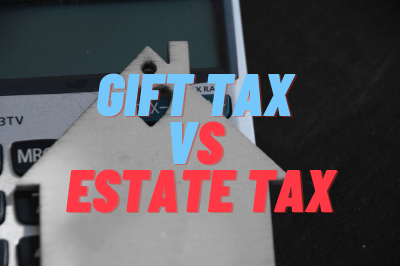The answer to this question is yes, you can give your house to your son without paying taxes. However, there are a few things you should know about estate and capital gains taxes before making this kind of transfer.
What is a gift tax?
A gift tax is a tax that is levied on the transfer of property from one individual to another. Generally, the person receiving the property is responsible for paying the tax. However, there are a few exceptions, including gifts that are made to a spouse or to charity. Gifting property can be a great way to reduce your taxable estate and potentially save on estate taxes. Life estate trusts are another estate planning tool that can help you avoid estate taxes. Full market value for transferring property to a qualified personal residence trust is also exempt from estate taxes.
The following are a few things you should know about the gift tax:
-The gift tax applies to all types of property, including cash, stocks, and real estate.
-The tax is assessed on the value of the property that is transferred.
-There is a limited exemption for gifts that are made to spouses and charities.
-The tax is due when the property is transferred, regardless of whether or not it is taxable.
-The person making the gift is responsible for paying the tax.
Lifetime gift tax exemption
The lifetime gift tax exemption is the amount of money that can be gifted to another individual without having to pay any gift taxes. As of 2018, the lifetime exemption is $11,180,000. Tax implications like income tax on the estate and capital gains tax on the sale of the estate still apply. Other federal government agency estate taxes may also apply. An elder law attorney can help you determine if any of these taxes apply in your estate planning.
What is estate tax?

An estate tax is a tax that is levied on the estate of a deceased individual. The estate is responsible for paying the tax, and it is generally assessed on the value of assets that are transferred as part of the estate. There are a number of exemptions that apply to estate tax, including the exemption for gifts that are made to spouses and charities. Estate tax exemption is also available for the estate of a person who died in 2010.
What is capital gains tax?
Capital gains tax is a tax that is levied on the profit that is made from the sale of the property. The tax is generally assessed on the difference between the purchase price and the sale price of the property. There are a number of exemptions that apply to capital gains tax, including the exemption for gifts that are made to spouses and charities.
How Does Gift Tax Work?
When you give property as a gift, you are responsible for paying the gift tax. The amount of the tax is based on the fair market value of the property at the time of the transfer. There is a limit on the number of gifts that can be made without paying gift tax. This limit is known as the estate and gift tax exemption. The estate and gift tax exemption was increased to $5 million in 2010. This means that you can give away up to $5 million worth of property without having to pay any gift tax. If you give away more than this amount, you will have to pay a gift tax on the excess amount. The estate and gift tax exemption will revert back to $1 million in 2011. Tax consequences should be considered with estate planning.
Gift tax vs. Estate tax
The estate tax and the gift tax are two different taxes. The estate tax is a tax that is levied on the estate of a deceased individual, while the gift tax is a tax that is levied on the transfer of property from one individual to another. The estate tax exemption is different from the gift tax exemption. The estate tax exemption applies to the estate of a deceased individual, while the gift tax exemption applies to the gifts that are made by living individuals.

It is important to note that the estate and gift tax exemptions are not the same things. The estate tax exemption applies to the estate of a deceased individual, while the gift tax exemption applies to the gifts that are made by living individuals. Estate taxes are paid by the estate, while gift taxes are paid by the person who makes the gift.
Capital gains tax on gift of property to child
When you give your child a gift of property, he or she will have to pay capital gains tax on the profit that is made from the sale of the property. The tax is generally assessed on the difference between the purchase price and the sale price of the property. There are a number of exemptions that apply to capital gains tax, including the exemption for gifts that are made to spouses and charities. The capital gains tax applies to all types of property, including cash, stocks, and real estate. The tax is due when the property is sold, regardless of whether or not it is taxable. The person who gives the gift is responsible for paying the capital gains tax.
How to avoid capital gains tax on gifted property

There are a number of ways to avoid paying capital gains tax on the gift of property. One way is to give the property to a qualified charity. Another way is to give the property to your spouse. If you give the property to your spouse, he or she will not have to pay any capital gains tax on the sale of the property. You can also give the property to your children and grandchildren. If you give the property to your children or grandchildren, they will not have to pay any capital gains tax on the sale of the property as long as they use it for their own personal use. However, if they sell the property, they will have to pay capital gains tax on the proceeds of the sale.
Finding choices on the gifted property?
Have troubles with what to do with your property? We’re a company that specializes in an all-cash transaction, and we have the resources to make quick decisions on a home purchase. We can close within 7 days of you signing our contract, and we always pay fair prices. We also don’t require a home inspection or you don’t need to pay for costly repairs on distressed properties, so you know that you’re getting a good deal. We will do our best to guide you through the entire process. Tasks like getting a purchase contract drawn up and securing title insurance are nothing new for them. Cash Offer Please will be able to give you a fair all-cash offer on your property simply by calling (805)429-8405 or filling out the form below.

